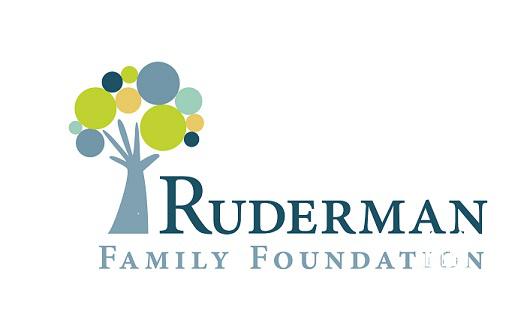“We are particularly interested in tapping into the bully pulpit of Chabad. If Chabad promotes inclusion it will make this enormously successful.” —Jay Ruderman
The Ruderman Family Foundation and Chabad-Lubavitch have formed a partnership for inclusion for people with disabilities within the Jewish community.
The partnership, explained Mr. Jay Ruderman, President of the Foundation, will help make it possible for people with disabilities to participate in mainstream religious programs, services and social events. The Foundation has been investing in various related initiatives with the hopes of changing conventional thinking that, notwithstanding all the goodwill towards them, leaves people with disabilities often isolated.
“There are all these groups at the margins of our community and they are lonely, they are not included, not part of our community,” he observed. With longer lifespans, the number of people with disabilities will increase as more people reach old age. Today, one out every five individuals is affected by a disability, making this “the largest minority population in the world, and in the Jewish community as well.”
With its highly successful network of Friendship Circle chapters, Chabad has been at the vanguard of creative programming for children with disabilities in Jewish communities worldwide. “This partnership will now allow Chabad to break new ground and focus on inclusion so that they will be able to actually participate in synagogue services and social events,” said Rabbi Yehuda Krinsky, Chairman of the educational and social services divisions of Chabad-Lubavitch.
Inclusion as a fundamental Jewish value is inherent to Chabad and informs the activities of its many thousand community leaders and more than 4000 Chabad Centers worldwide. The central tenet of Chabad Chasidism sees the soul as the unifying element between Jews.
“Irrespective of outer appearances or disabilities,” said Rabbi Krinsky, “it is the soul that we share in common with one another as Jews. And this is absolutely basic to everything we stand for as representatives of Chabad.”
Rabbi Yossi Lipsker, Director of Chabad of the North Shore who initiated the partnership said it “will encourage greater strides towards fulfilling a value that reflects our deepest ideals, and our work as Chabad community leaders.”
Mr. Ruderman welcomed the opportunity to partner with Chabad. “Chabad has been very successful in the Jewish world because it is very welcoming, without judgment. We are particularly interested in tapping into the bully pulpit of Chabad. If Chabad promotes inclusion it will make this enormously successful.”
Learning From the Rebbe
The Lubavitcher Rebbe offered unusual insight to individuals with disabilities, and embraced them with particular warmth and regard. Speaking to wounded and disabled soldiers of the IDF in the summer of 1976, he stated that individuals affected by a disability of some kind are endowed with deeper spiritual awareness.
When a parent of child with autism met the Rebbe in the early 1990s—at a time when children with autism were routinely institutionalized and little was understood about them—the Rebbe took the parent by surprise with his insight. “An individual with autism may not relate to other people but they relate to G-d as well as anyone else and even better,” the Rebbe said.
An important part of the project, said Rabbi Krinsky, will be to cull all of the Rebbe’s remarks on this matter “so that we can disseminate the Torah perspective that helps us appreciate the individual on the basis of our shared neshama, and embrace people with disabilities wholeheartedly as we strive to include them.”
Still to be honed are the details that will facilitate implementation of the initiative among the network of Shluchim internationally. Rabbi Shmaya Krinsky at Lubavitch Headquarters is leading the project: “We are still exploring ways to streamline new ideas for the application of our shared vision of inclusion.”
Among other initiatives, The Ruderman Prize in Inclusion, awarded every year to non-profit Jewish organizations or programs that have shown excellence in inclusion, said Jay Ruderman, will encourage “the Jewish community to pull back from the race for upward mobility and material gains. I think we’ve lost sight of this along the way in the modern world. We are creating a country club that has segregated 20% of the Jewish community.”
Leaders of the Foundation and Chabad said the partnership will benefit not only those with disabilities, but the larger population as well, increasing awareness and sensitivity.

Be the first to write a comment.